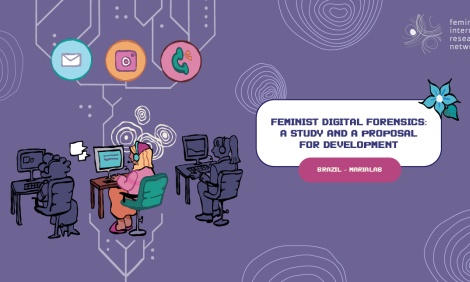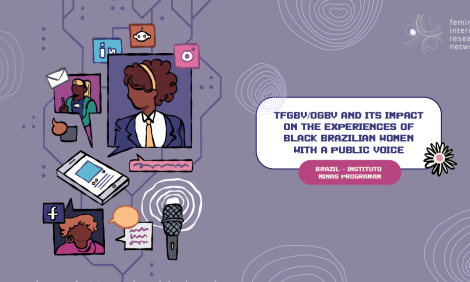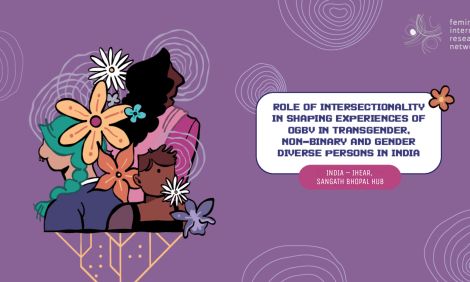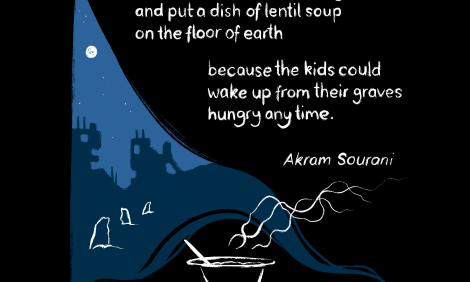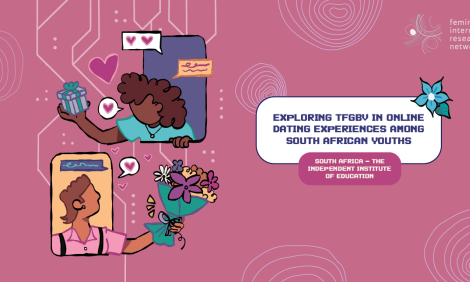Feminist talk
Big Tech Profiteering of Political Misinformation Costs Human Rights in the Global South
By Seerat Khan
As technology evolves, its growing role in democratic processes has become increasingly visible, with election candidates around the world incorporating AI into their campaigns. Seerat Khan argues that in an industry lacking effective regulation, this integration fuels political disinformation, often amplified by tech companies seeking to profit from heightened engagement.
Feminist talk
Technology-facilitated gender-based violence (TFGBV) in Tajikistan: Research challenges and the feminist research approach
By Gulbakhor Makhkamova
Gulbakhor reflected on the challenges in navigating a research on TFGBV in Tajikistan, where domestic violence and marital rape are not criminalised, reinforced by a culture of silence and spaces for women to be heard is almost non-existence.
Feminist talk
Bringing the energy home
By Carl
This article by MariaLab reflects on the redefinition of technology and science as cultural carrier bags instead of weapons of domination. Throughout their research, they seek to challenge the traditional dichotomies of subject and object and conventional notions of scientific rigour when working to establish more horizontal and collaborative research relationships.
Feminist talk
Black women, gender non-conforming persons and technology-facilitated gender-based violence: A decolonial feminist exploration
By Aphiwe
The research team from the University of Cape Town (UCT) discuss their use of decolonial feminism in their contribution to feminist politics of knowledge building and centering of participants’ voices in the research and knowledge co-creation with the participants in their research project.
Feminist talk
Reflecting on feminist research: From a shared experience to collaborative learning
By Martha Tadesse
In researching the multiple ways violence against LGBTQIA+ take place in Ethiopia, Martha and S.A. reflected how the broader social, cultural and political environment influence the process and how they work together collaboratively based on shared values and ethics despite the differences in terms of perspective, approaches and emotional response.
Feminist talk
“What happens after you publish this research?”: How feminist research invites us to centre liberation, connection and care in our practice
By Bárbara Paes
Researching on the experiences of Black Brazillian women with TFGBV, the authors share their reflection on research methodology, their relationship with participants, the (imperfect) measures they implemented to navigate power dynamics embedded within the research process and recognition of research participants as the key contributors to this work.
Feminist talk
Liminalities of researcher positionality: Blurring roles as researchers, counsellors and peers
By Sharin Dsouza
In this article, the authors reflect on the moments when we felt that their roles blurred during the study on the experience of TFGBV for transgender, non-binary and gender diverse persons in India —when “objectivity” met empathy, when boundaries felt porous and when their identities were a part of the stories that were told.
Feminist talk
What is method under annihilation? Notes on queerness, death and data
By Sabiha Allouche
In the face of consistent violence and genocide, Ghiwa and Sabiha from Kohl opens the conversation on doing research while grieving for the destruction of lives being wiped out generation after generation by settler colonialists.
Feminist talk
Beyond knowledge production: Can research be a site for more? Reflexive notes
By Aya ElHusseini
In this critical reflection of her experience in conducting feminist research on the implication of TFGBV on women and LGBTQ+ people in Egypt, Aya explores research as a site for community building and organising.
Feminist talk
Exploring technology-facilitated GBV in online dating experiences among South African youths: Reflexivity on the research methods
By Dr Aretha Oluwakemi Asakitikpi
This article explores the various decisions that the research teams had to make throughout the process and how being reflexive also means being ready to revise research design, and subsequently open the doors for other ways of doing and knowing.




